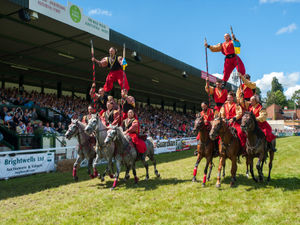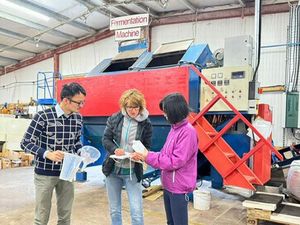Shropshire livestock markets 'vital' to feed the nation through coronavirus pandemic
Unprecedented circumstances mean the most stringent public restrictions since the Second World War have been introduced, forcing industries to shut down and causing mass disruption to those that manage to remain operating.
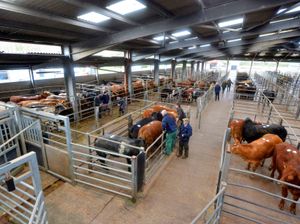
Despite the hindrances placed on workers throughout the county, the lifeblood of Shropshire's agricultural industry continues to flourish as a vibrant livestock trade sees markets boom and prices rocket as farmers work to meet the sudden increase in demand for fresh and nutritional food.
And the bigwigs of the industry have highlighted why now more than ever, as the Prime Minister Boris Johnson enforces a semi-lockdown, it is vital those behind that fresh pint of milk and shank of lamb continue to soldier through the pandemic.
Martin Clack is the vice chairman of the biggest agricultural one-day event of its kind in the UK, the Burwarton Show, which takes place annually between Bridgnorth and Ludlow.
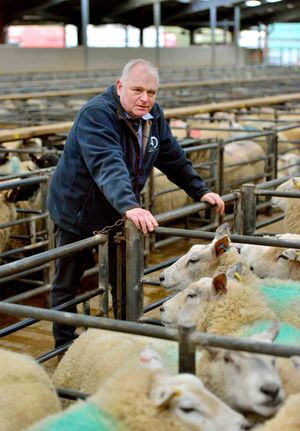
Working for Nock Deighton, he also attends Bridgnorth Livestock Market every week and said butchers throughout the region have boasted trade surpassing that even at Christmas.
Mr Clack said last week's market saw a "ridiculous entry" of livestock providing a full market.
He said: "It has never been so important to keep auctions operating so that the butchers we sell to can keep their customers fed."
Speaking in Tasley on the day of the last market, he said: "We are in very difficult times, unprecedented since possibly 1945 – although the various foot and mouth outbreaks did test the agricultural community to say the least – but trade today shed a shimmer of light on our farmers and buyers and what they do.
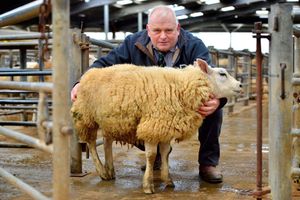
"Prices have not been seen along these lines since the horsegate scandal, with local butchers reporting Christmas demand or better as everybody stockpiles or buys a little extra with lockdown imminent.
"With the memory of foot and mouth market closures still fresh in most farmer's bank balances, plenty of sheep seem to be pushed onto the market place. However, customers also remember the disruption in the supply chain and are very keen to keep large numbers in reserve."
Mr Clack added: "If you are asked to operate in the markets in ways you are not used to, please be patient. It is all for the smooth continuation of the market."
There are about 1,150 traditional markets across the UK and more than 40,000 traders.
And although the current need may be great, the chief executive of the National Association of British Markets (NABMA), David Preston, said traders are becoming fearful for the future and has called for detailed reassurance from Chancellor of the Exchequer, Rishi Sunak.
Mr Preston said: "These regular traditional markets support tens of thousands of small businesses.
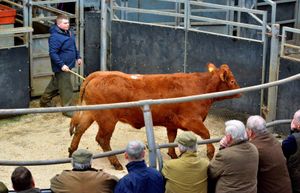
"Food sales are a mainstay of markets and their continuance will create sustainability for market traders and be the basis of market recovery planning for when the crisis is over. Lost traders may never recover their business, which then puts the future of some markets at risk.
"Now is the time, more than ever, to recognise the importance of markets, and market traders, and the important role they play in the economic, employment and community life of town and city centres. Our plea to the Chancellor is to outline the benefits available to markets and their traders, how to access them and to provide full business rates relief for local authority operated markets.”
Meanwhile market traders in Bishop's Castle report similar boosts as their Bridgnorth counterparts.
Halls Auction said its latest market in the town saw "another excellent sale of cattle" and the company has introduced a number of special measures to ensure its continuity.
A company spokesperson said: "Despite the strange days in which we find ourselves, the trade was very positive with demand high from all quarters.
"Any person with a cough or fever, over 70, pregnant ladies and young children should not attend the market to protect themselves and others.
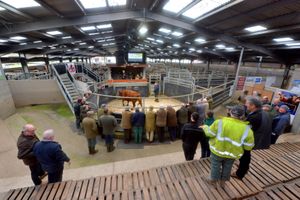
"We request only buyers at ringside and sellers in the gallery.
"We are also offering a drop and go service for all vendors who wish to maximise their social distancing.
"Simply pull up and our staff will unload, collect your paperwork and send you on your way.
"We will endeavour to remain open throughout these challenging times."
As day-to-day farmers continue their hustle, the West Midlands regional director of the National Farmers' Union (NFU), Robert Newbery, who is based in Telford, said the union was busy staying in close contact with its extensive network of farmer and grower members, to gather and relay important sector and Covid-19 information.
Mr Newbery said: “Like everybody we are concerned with developments and how the virus is evolving and farmers are feeding into us so we can build up a picture of the impact on their businesses.
“The industry is resilient and contingency plans are in place to ensure the smooth running of food and farming supply chains, which are absolutely vital at this time.
“The NFU is also a member of the UK Food Chain Emergency Liaison group, convened by Defra, and is having regular meetings to discuss the ongoing situation.
“The Prime Minister was quite clear when he said there were 12 weeks to turn the tide on this disease. Farmers are protecting themselves and their families where they can and as usual they are making sure animal welfare is a top priority."
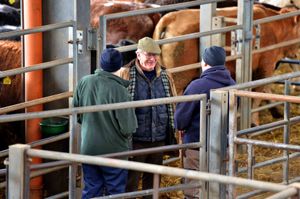
Mr Newbery added that production will continue.
“Regardless of the timescale we’ll be farming throughout this emergency, producing high-quality, tasty, nutritious, affordable and traceable food here in Shropshire and for the nation," he said.
“We will continue to work with the government and the food industry to do our utmost to minimise any disruption to the supply chain or to farm businesses.”
The Shropshire adviser for the NFU, Jonathan Evans, said: “We’ve always found Shropshire shoppers are supportive of our industry and we thank them for backing British farming.
“At this time I would urge everyone to stay safe and keeping talking to each other, this is important for all, especially the elderly, those on their own and those in remote, isolated, rural locations."
Lloyd Humphreys of McCartneys auctioneer, which runs markets in Ludlow, echoed the calls and said it is vital that livestock events are kept open as long as possible during the pandemic.
He said business across all of their livestock auctions, including in Kington, Knighton, Ludlow, Brecon and Worcester, was "unbelievable".
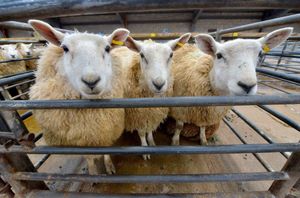
“The price for cull ewes is possibly the dearest it has ever been, certainly the dearest that I have ever known it," he said. "We had a good day at Knighton on Friday where we got 117.89p a head for cull ewes, normally you would get about 65p to 70p on them.
“The cattle and sheep sales there were full. It was a very busy day, the ring was full and we had about 150 cattle and 500 store sheep.
“I think a lot of it is down to market forces, there is demand and the export market drives a lot of it, if we were to lose that it would probably not be so good.
“With all the uncertainty and everything going on at the moment, with Brexit and now coronavirus, its amazing that the markets keep going and keep being busy.
“Some people will say farmers are doing well out of the high prices at the moment but they needed a boost and any money they are making now is only making up for what they have lost recently.”
Mr Humphreys said the operation of the markets also has a huge impact on the success and vibrancy of Shropshire towns.
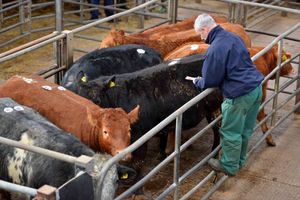
“When farmers are doing well there’s a knock-on effect to farm machinery dealers, feed merchants and everyone, including pubs and restaurants," he said.
“Lots of local butchers seem to be doing good trade at the moment too by supplying meat packages. When supermarkets sell what’s on their shelves, that’s it, its gone, but local butchers can cater for bulk buying.”
He said he thought the virus may also make people appreciate where their food comes from and the vital role of farmers in feeding the nation.
“Lots of people do not realise where their food comes from and I think this virus will make people realise that they need farmers for their food," Mr Humphreys said.
"People have said about keeping away from dairy products recently but with this virus they are being told to drink milk and dairy products to build the immune system.”
Mr Humphreys said all of the markets are currently still operating although stringent measures have been brought in to make them as safe as possible.
He said McCartneys is asking farmers to drop their sheep off and leave after the sale, rather than socialising. No spectators are currently allowed so the markets are restricted to buyers, hauliers, sellers and market staff. Hand sanitiser and soap are available and staff have been asked to wear gloves.
McCartneys have closed its canteens Ludlow and Knighton.
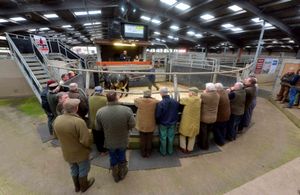
Mr Humphreys added: “We will try and continue to keep the markets going as long as possible.
“We are doing everything we can to limit social interaction and to prevent the spread of coronavirus.
“It’s so important to keep these local markets going as long as we can because if they shut down where is the food going to come from locally? Livestock markets create a competitive atmosphere and the farmers can achieve a maximum price or if they are not happy with the price, they can take the stock home – rather than with dead-weight sales where you are pinned down on a price.”
Brightwells Auctioneer which runs Builth Wells Livestock Market has also reported that business is good and prices have been better than they have been for a long time.
The company said business is continuing as usual although everyone is encouraged to take steps to prevent the spread of the virus. It said farming will have an even more important role in feeding the country throughout the pandemic.



